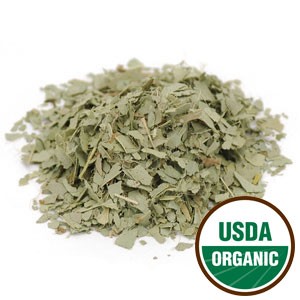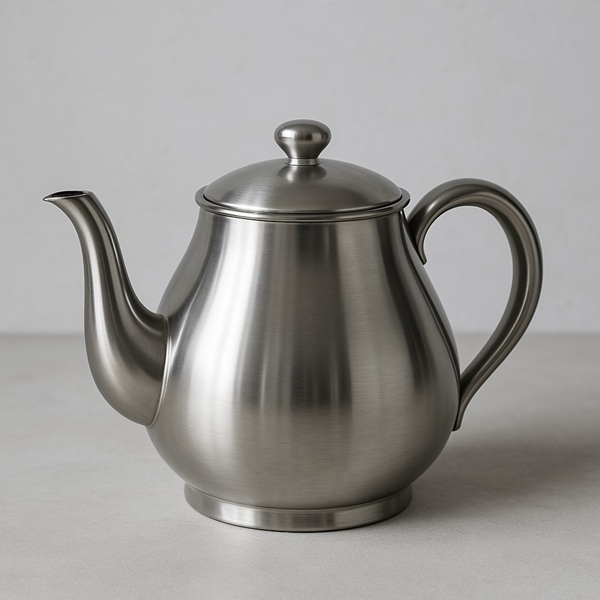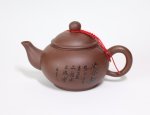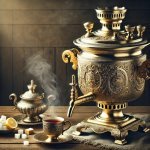Eucalyptus Tea
-
A Tea for Your Respiratory Problems
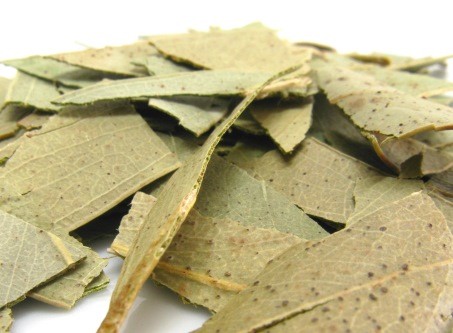
It may help you by bringing relief whether you drink this tea or simply breathe in its soothing and decongesting vapors.
Made from the leaves of a tall growing tree, this is a tea that has been a part of traditional medicine for a long time and is still much in use today all over the world.
Come and learn about this healing infusion!
What is Eucalyptus?
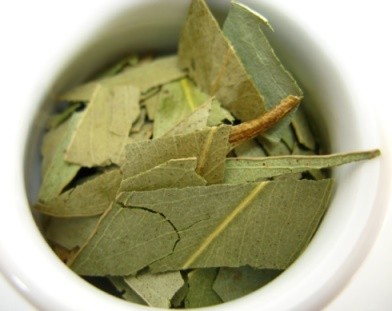
Today this tree is grown in many other parts of the world as a reforestation method, because it is such a fast-growing tree.
There are several species of eucalyptus; some are no larger than a shrub while others may reach well over 60 meters tall, thus being considered very large trees, among the tallest in the world.
The particular species of eucalyptus globulus is also called "blue gum tree" or "Australian fever tree". The former refers to the color of the leaves and the sap that exudes from the bark, whereas the latter refers to the healing antimicrobial and antibacterial nature of its benefits.
The key element of this eucalyptus species is its grey greenish leaves. These are large, thick and leathery, with a distinctive lanceolate shape. When the leaves are crushed they release a strong fragrance and oil that may be extracted for many uses. The leaves are collected and dried to make a healing cup of tea.
History of Eucalyptus
The first to use eucalyptus tea to bring down a fever were the aboriginal people of Australia. This plant was only introduced to the rest of the world in the 18th century by a botanist on the Cook voyages to the Australian continent.
Eucalyptus was quickly adopted by traditional Chinese and Ayurveda medicines and, in the 19th century, it began being planted in Europe. By the beginning of the 20th century large plantations of eucalyptus would be found in many countries.
The rapid growth of these trees helped not only to reforest vast areas of land but feed into the growing industries from pulpwood and charcoal to hygiene and cosmetics. In swamp areas the eucalyptus trees helped to drain the soil and reduce cases of malaria.
Unfortunately, in some countries, such as Portugal and Spain the eucalyptus has also proven to be damaging. This tree sucks up vast amounts of water and nutrients from the soil rendering it useless for much else.
Other countries have begun to return to their native trees and plants in hopes of restoring soil quality and natural wildlife.
Uses for Eucalyptus Today
Eucalyptus leaves are still appreciated for their value in teas, inhalations and even for making cough candy. The nectar produced by lovely eucalyptus flowers is made into high quality honey.
As potpourris or stored inside a drawer, leaves are used to scent both clothes and home. You will find many products using eucalyptus oil for its refreshing and antiseptic properties, such as detergents, mouthwash, toothpaste and much more.
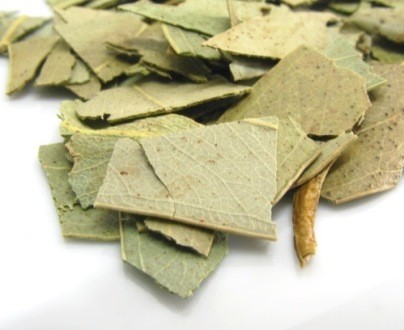
Benefits of Eucalyptus Tea
Eucalyptus leaves are rich in limonene, which is antiviral, eucalyptol, and pinene, which is antiseptic. Apart from the volatile oils, this tea also contains flavonoids and tannins. These elements account for some of the main benefits of this herbal tea.
Treat Respiratory Problems
- The most important of all eucalyptus tea benefits is its ability to help speed up the treatment of cold, flus and sore throats. Its antibacterial properties may help treat the cause of your respiratory ailments.
- Taking this tea may also help to break a fever, bringing high body temperature down. You may even use eucalyptus leaves to create an air purifier, helping to clear the room of microbes.
- As an expectorant, this tea may help by relieving irritation and disinfecting the respiratory tract. Eucalyptus herbal tea may help to expel phlegm and mucus that is causing chest congestion and making it difficult for you to breathe.
- This herbal tea may treat all sorts of respiratory ailments such as laryngitis, bronchitis, emphysema and other infections. Gargling with it may even help to heal and calm a bad cough, treating an inflamed sore throat.
- It also helps with other breathing problems such as allergies, asthma, rhinitis and sinusitis. You may even try using eucalyptus tea to try to reduce snoring. It is worth a try.
Blood Sugar Regulator
- Drinking eucalyptus may help to lower blood sugar levels and stimulate the production of insulin. This may help prevent the onset of diabetes. If you already have diabetes then you should speak to your doctor before drinking this tea.
- A cup of this herbal tea may also improve blood circulation, relieving blood pressure and thus possibly preventing heart disease and other health problems.
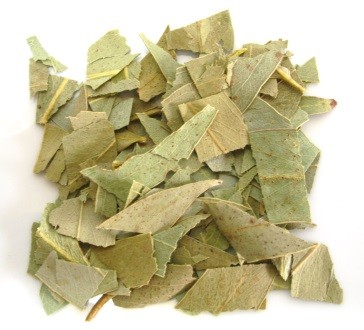
Digestive Aid
- Eucalyptus tea may be used to improve your digestion by clearing away any bacteria or parasites that may be causing you digestive problems. This herbal tea may be used as a cleansing agent, clearing your intestines of toxins and harmful agents.
- It is a refreshing and cooling tea that may begin helping you the moment you take your first sip, as it helps to treat mouth infections, gum disease and even preventing cavities and plaque.
- It is a great remedy to try when you have mouth sores or just simply bad breath that could have been caused by bacteria.
Infection Fighter
- Eucalyptus tea may be used to treat an illness, but it may also be used to prevent the occurrence of future ailments. A cup of this tea may help to give your immune system a boost reducing the chances of you getting sick.
- Drink daily to help clear up acne, as this is a minor bacterial infection that may be fought using this antibacterial herbal tea. Eucalyptus is said to help detoxify the liver and cleanse the kidneys, resulting in healthier and fresher skin.
- A cup of eucalyptus tea may be what you need when you have bladder or urinary problems. It is said to help not only treat bladder disease but also clear away infections in the urinary tract. This antiseptic tea may also help fight cystitis.
- This herbal tea may be able to treat other infections, such as strep throat, E. coli, or yeast infections.
External Uses
- Make a cooled eucalyptus infusion to use as a topical treatment for skin infections or inflammation. Use this herbal tea to clear away bacteria or microbes that are causing your problems.
- As a compress this herbal infusion may be used to help scar wounds and begin the healing process. It may be used on cuts, burns and other wounds that you need help cleaning.
- When applied topically this tea is also said to make your skin look healthier and feel fresher. You may resort to this tea when you need to get rid of lice or just simply repel insects.
-
You may find relief from muscle pains or joint stiffness by using a warm compress made with eucalyptus tea. This may also apply when the ache is caused by rheumatism or arthritis. The herbal infusion may clear away the inflammation and soothe the area.
Tip: Try soaking in a bath infused with eucalyptus tea when your body is aching.
Try a cup of eucalyptus herbal tea now!
Side Effects of Eucalyptus Tea
Even the most healing teas come with some recommendations. So let's take a quick look at some of them.
Common Side Effects
- Eucalyptus leaf tea is considered generally safe, although some rare allergic reactions may include nausea, vomiting, diarrhea and difficulty breathing much like an asthma attack. This could also be caused by taking too much of this tea.
- Drinking this tea may bring down sugar levels, so people who are on diabetes medication should monitor glucose levels carefully.
- Also because of its effects on glucose levels, eucalyptus tea should not be taken during the two weeks prior to a surgery.
Do Not Take This Herbal Tea
- This tea should always be made from eucalyptus leaves and not directly from its essential oil as the oil is poisonous and should never be ingested.
- Pregnant or breastfeeding women should not be drinking eucalyptus tea, unless otherwise advised by the accompanying physician.
- Children should not drink this tea. At most they may reap the benefits of breathing in a eucalyptus scented steam.
- If you suffer from serious stomach, intestinal, kidney or liver problems, then you should not drink this tea, especially if you have had ulcers or suffered from gastritis. Talk to your doctor about milder herbal remedies that are best suited for you.
Drinking Eucalyptus Tea
Drinking eucalyptus tea is considered one of the best ways of reaping the benefits of this plant. So let's learn how to make eucalyptus tea.
Quantity: 1leaf or 1/2 teaspoon per cup (250ml)
Water temperature: 100 C/boiling
Steeping time: 5-10 minutes
Recommended dosage: 3-4 cups a day
Sweetener: honey
Best paired with: peppermint, chamomile
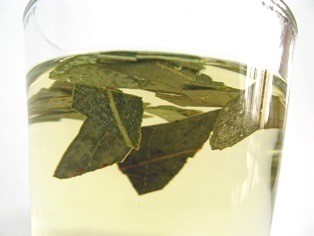
- Start by putting the kettle on and bringing water to a boil.
- In a teapot, place about 1/2 teaspoon or 1 chopped-up eucalyptus leaf per cup of water (250ml).
- Pour boiling water over the leaves and let the tea brew for about 5 to 10 minutes.
- As you wait for the tea to brew or while waiting for it to cool down, take the opportunity to breathe in the healthy vapors that will start the decongesting process.
- If you are using this tea to treat a cold or a sore throat then it is a good idea to add honey to sweeten your tea.
- Drink about 1 to 2 cups of this tea a day as a preventive herbal remedy, or 3 to 4 cups a day when you are sick.
Eucalyptus tea has a strong, woody aroma and a pale green color once strained. This tea may become bitter if you brew it for too long, so adjust steeping time to your taste.
Additional Tips
- Make this tea into an herbal bath by adding chopped leaves into the hot water. A nice eucalyptus soak can help treat skin inflammation or infections. Or at most, you will have a nice scented relaxing bath.
- Add eucalyptus leaves to a bowl of hot water and then breathe in the steam to help decongest your nasal passages and breathe better.
- When making your tea to treat a bad cold, consider blending with other healing herbs such as: peppermint, chamomile, coltsfoot or thyme.
- For rhinitis, add chopped up garlic cloves to enhance the powers of your tea.
- For acne, you may make a cleansing tonic by blending eucalyptus with dandelion, licorice and fennel seeds.
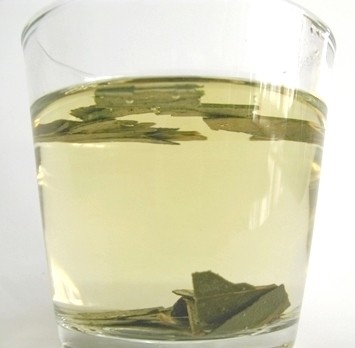
Buy Your Eucalyptus Tea Today!
Click on the image or on the link below to purchase from Starwest Botanicals your Eucalyptus Leaf.
Use this organic herb to quickly make a cup of healing tea.
These leaves make a soothing and an amazingly scented tea that will offer you relief when you most need it.
Click on the image or on the links below to purchase from Republic of Tea your Get Protected Tea.
This blend includes not only eucalyptus, but also cinnamon, rosemary, orange peel and cloves, among other ingredients to give you a warm and wonderfully scented cup of tea.
Buy here: Get Protected Tea
Next time you have a cold remember to use eucalyptus tea. Whether you drink it or just inhale its wonderful steam, this herb is worth trying.
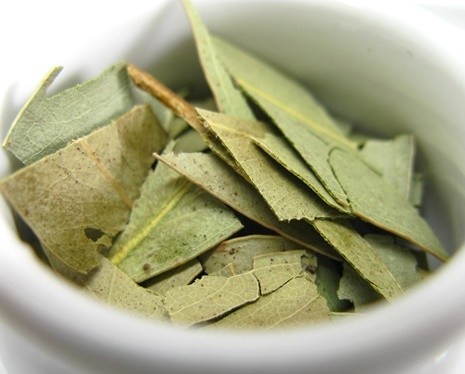
Breathe easier and be healthy!
Return from Eucalyptus Tea to Herbal Teas
Return to The Right Tea Homepage
”While there's tea there's hope.” - Sir Arthur Wing Pinero (1855-1934), British actor

Do you have a question? Then feel free to Contact Us!
And don’t forget to follow us on Facebook to receive updates, photos and interesting tips and news! Follow us also on Pinterest!
Search Website:
Be healthy
with a wide
choice of herbs!

Prepare your tea!
Try these
Tea Samplers!

Wellness Pack at ArtofTea.com

Award Winning Pack ar ArtofTea.com
Find other
tea time items at ...





